Bad Breath in Dogs: Everything You Need to Know
If you’re a dog owner, you know that bad breath in dogs is a common issue. While it’s not always a cause for concern, it can be a sign of underlying health issues that should be addressed. In this article, we’ll cover everything you need to know about bad breath in dogs, from the causes to prevention and treatment options.
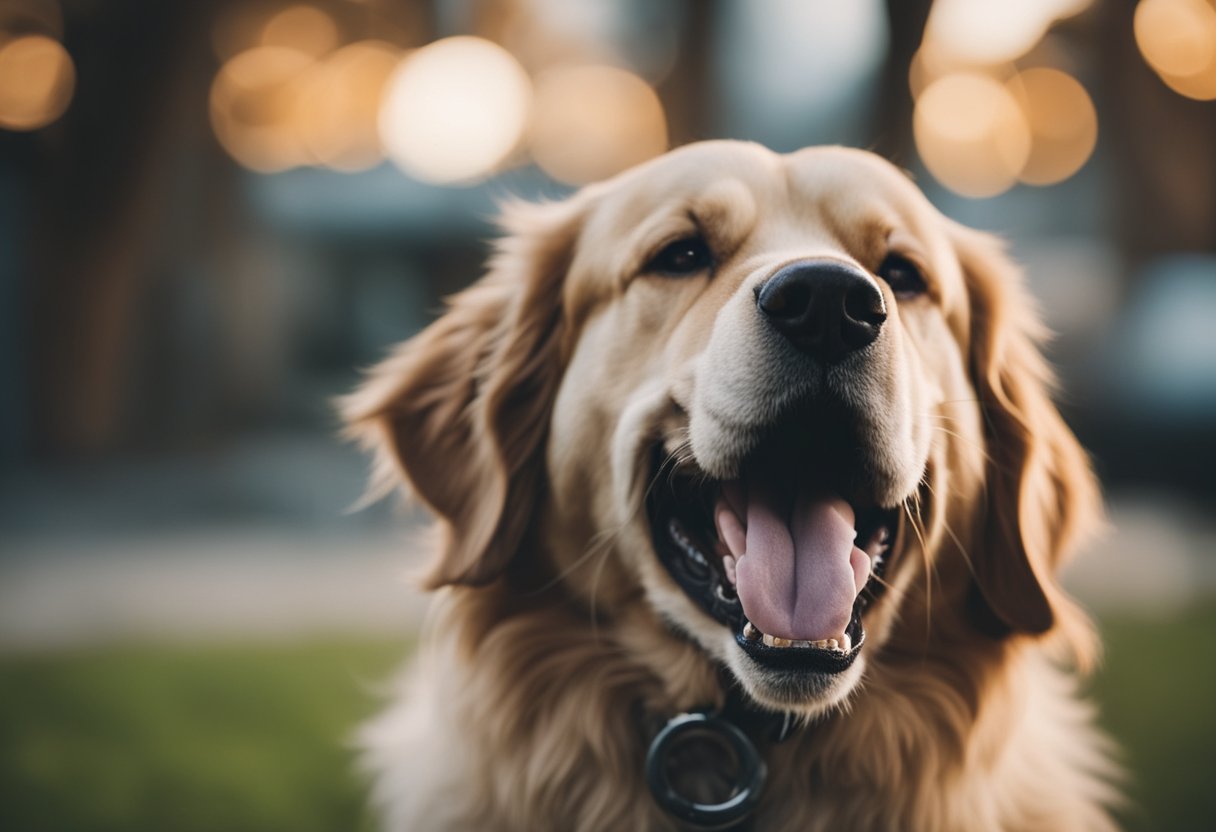
First, it’s important to understand the causes of bad breath in dogs. Poor dental hygiene is a leading cause, as bacteria can build up in the mouth and cause a foul odor. Other causes include gum disease, respiratory issues, gastrointestinal problems, and even certain medications. Identifying the cause is key to finding an effective treatment plan.
Prevention and treatment options for bad breath in dogs vary depending on the underlying cause. Regular dental care, such as brushing your dog’s teeth and providing dental chews, can help prevent bad breath caused by poor dental hygiene. In cases where bad breath is a symptom of an underlying health issue, treatment will focus on addressing the underlying condition. With the right care, you can help keep your dog’s breath smelling fresh and improve their overall health.
Key Takeaways
- Bad breath in dogs can be caused by a variety of factors, including poor dental hygiene, respiratory issues, and gastrointestinal problems.
- Regular dental care, such as brushing your dog’s teeth and providing dental chews, can help prevent bad breath caused by poor dental hygiene.
- Identifying the underlying cause of bad breath is key to finding an effective treatment plan.
Causes of Bad Breath in Dogs
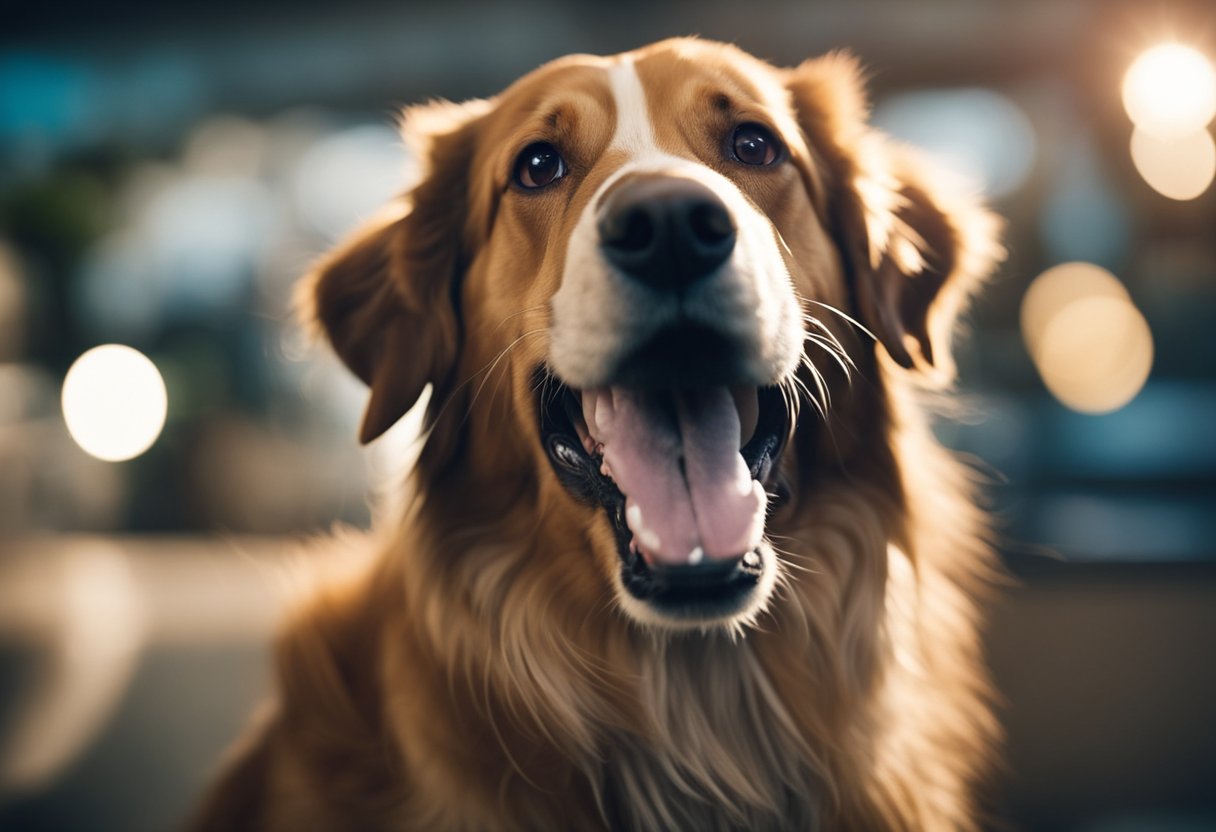
If you notice that your furry friend has bad breath, there may be several underlying causes. Here are some of the most common causes of bad breath in dogs:
Dietary Factors
Your dog’s diet can have a significant impact on their breath. Eating strong-smelling foods, such as garlic or onions, can cause temporary bad breath. Additionally, dogs that eat a lot of table scraps or have poor diets may develop bad breath due to poor digestion.
Oral Health Issues
Poor oral hygiene practices and periodontal disease are the most common causes of bad breath in dogs. Dogs who have crowded, crooked, or misaligned teeth are more at risk of plaque and tartar buildup, but even pups with a perfect smile are susceptible to oral health issues. If left untreated, periodontal disease can lead to tooth loss and serious health problems.
Underlying Medical Conditions
Bad breath can also be a sign of an underlying medical condition. For example, dogs with diabetes may have a sweet, fruity odor to their breath. Kidney disease, liver disease, and gastrointestinal problems can also cause bad breath in dogs. If your dog’s bad breath persists despite good oral hygiene practices, it’s important to have them evaluated by a veterinarian to rule out any underlying medical conditions.
By understanding the common causes of bad breath in dogs, you can take steps to prevent it from occurring. Regular dental checkups, a healthy diet, and good oral hygiene practices can go a long way in keeping your furry friend’s breath fresh and clean.
Prevention and Treatment
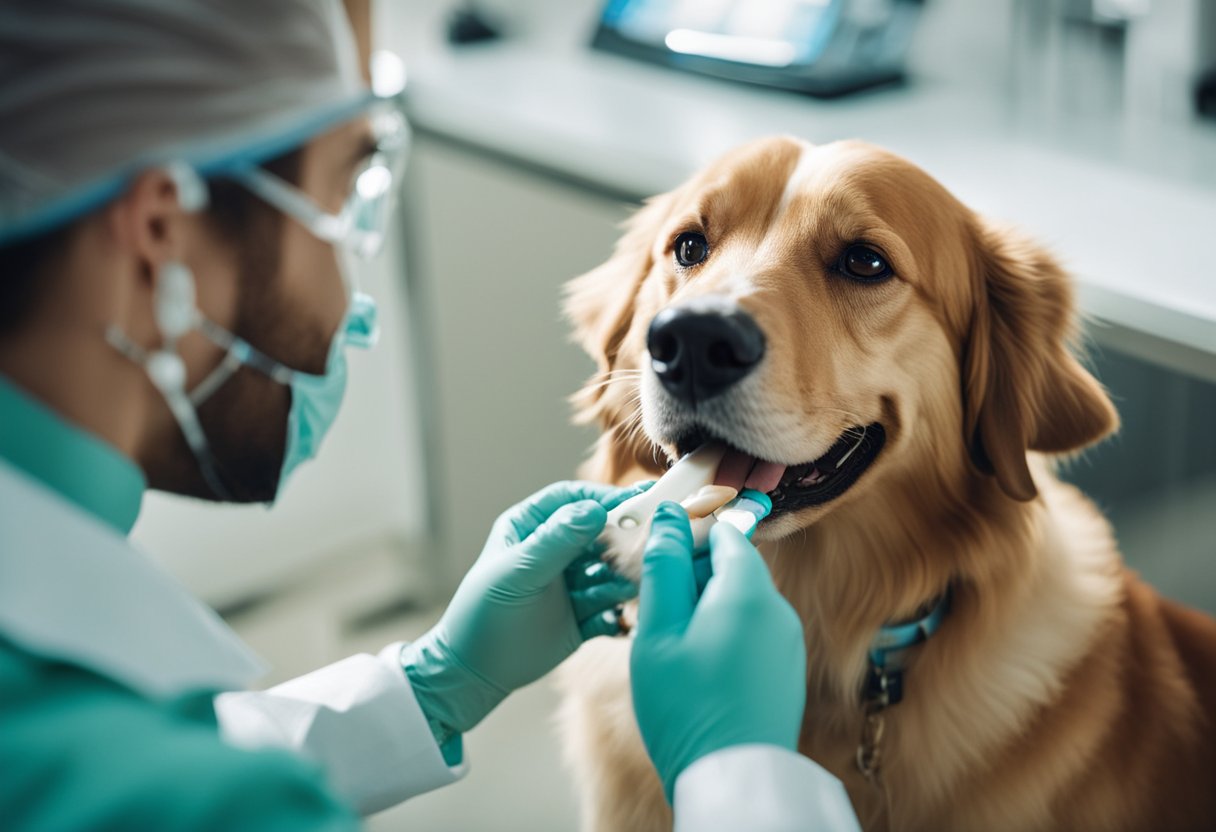
If you want to prevent bad breath in your dog, there are a few things you can do. Regular dental care, dietary adjustments, and veterinary interventions can all help keep your dog’s breath fresh.
Regular Dental Care
One of the best ways to prevent bad breath in dogs is to practice good dental hygiene. Brushing your dog’s teeth regularly can help remove plaque and bacteria that can cause bad breath. You can use a toothbrush and toothpaste designed specifically for dogs, or you can use a finger brush and some water. Aim to brush your dog’s teeth at least once a week, but ideally, you should brush them every day.
In addition to brushing, you can also give your dog dental treats and toys that help clean their teeth. Look for products that are specifically designed to help freshen your dog’s breath.
Dietary Adjustments
Diet can also play a role in your dog’s breath. Feeding your dog a high-quality diet that is rich in protein and low in carbohydrates can help keep their breath fresh. Avoid feeding your dog table scraps or foods that are high in sugar, as these can contribute to bad breath.
You can also add some fresh fruits and vegetables to your dog’s diet. Carrots, apples, and celery can all help clean your dog’s teeth and freshen their breath.
Veterinary Interventions
If your dog’s bad breath persists despite your best efforts, it may be time to see a veterinarian. Your vet can perform a dental exam and cleaning to remove any plaque or tartar buildup that may be contributing to your dog’s bad breath. They can also check for any underlying medical conditions that may be causing the bad breath, such as gum disease or kidney problems.
In some cases, your vet may prescribe antibiotics or other medications to help treat your dog’s bad breath. Be sure to follow your vet’s instructions carefully and give your dog any medications as directed.
Resources

As a responsible pet owner, it’s important to stay informed about your dog’s health, including their breath. Here are some resources to help you learn more about bad breath in dogs and how to prevent it.
Websites
- Preventive Vet: This website provides a comprehensive guide to identifying the causes of bad breath in dogs and how to treat it. They cover topics such as dental health, diet, and underlying medical conditions that can contribute to bad breath.
- AKC: The American Kennel Club offers tips for preventing bad breath in dogs, including regular dental cleanings and feeding a healthy diet. They also discuss the importance of identifying underlying medical conditions that can cause bad breath.
- PetMD: This website outlines the most common causes of bad breath in dogs, including dental issues, diet, and underlying medical conditions. They also provide tips for preventing bad breath, such as regular teeth brushing and feeding a balanced diet.
Products
- Greenies Dental Treats: These dental treats are designed to clean teeth and freshen breath. They are available in a variety of sizes and flavors to suit different dogs’ needs.
- Nylabone Dental Chews: Nylabone offers a range of dental chews that are designed to clean teeth and freshen breath. They are available in different shapes and sizes to suit different dogs’ needs.
- Oral-B Veterinary Dental Spray: This dental spray is designed to freshen breath and prevent plaque and tartar buildup. It can be used daily to help maintain dental health.
Remember, regular dental cleanings and checkups with your veterinarian are essential for maintaining your dog’s oral health and preventing bad breath. If you have any concerns about your dog’s breath, be sure to consult with your veterinarian.
Conclusion
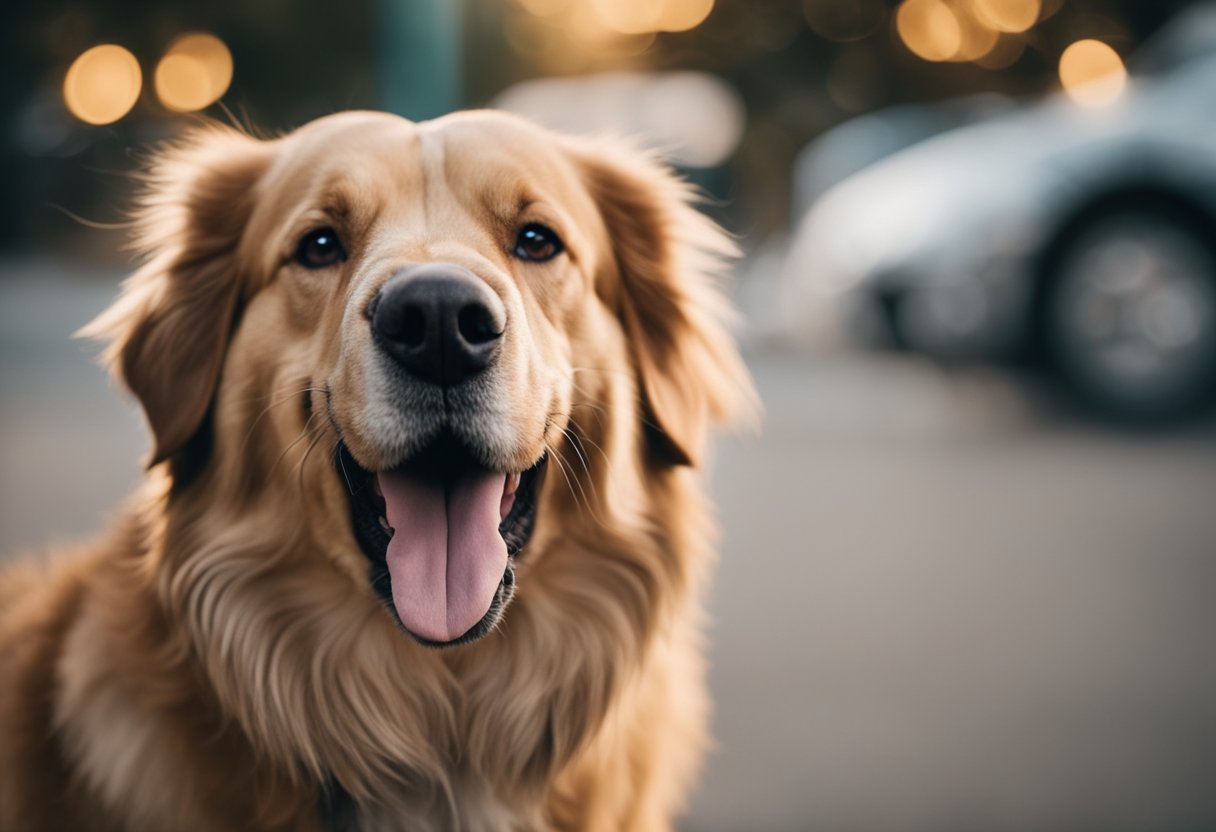
By now, you should have a good understanding of the causes and solutions for bad breath in dogs. Remember that bad breath is not just a cosmetic issue, but can be a sign of underlying health problems. It’s important to maintain good oral hygiene for your furry friend and take them to the vet for regular check-ups.
Here are some key takeaways to keep in mind:
- Brush your dog’s teeth regularly with a dog-specific toothpaste and toothbrush to remove plaque and tartar buildup.
- Provide your dog with dental chews, toys, and bones to help keep their teeth clean and healthy.
- Feed your dog a balanced diet with appropriate nutrients to support their overall health.
- Take your dog to the vet for regular check-ups and dental cleanings to catch any potential health issues early on.
- Be aware of the signs of dental problems, such as bleeding gums, loose teeth, and difficulty eating.
By following these tips, you can help ensure that your dog has fresh breath and good oral health. Remember, a healthy mouth means a happy pup!
Frequently Asked Questions
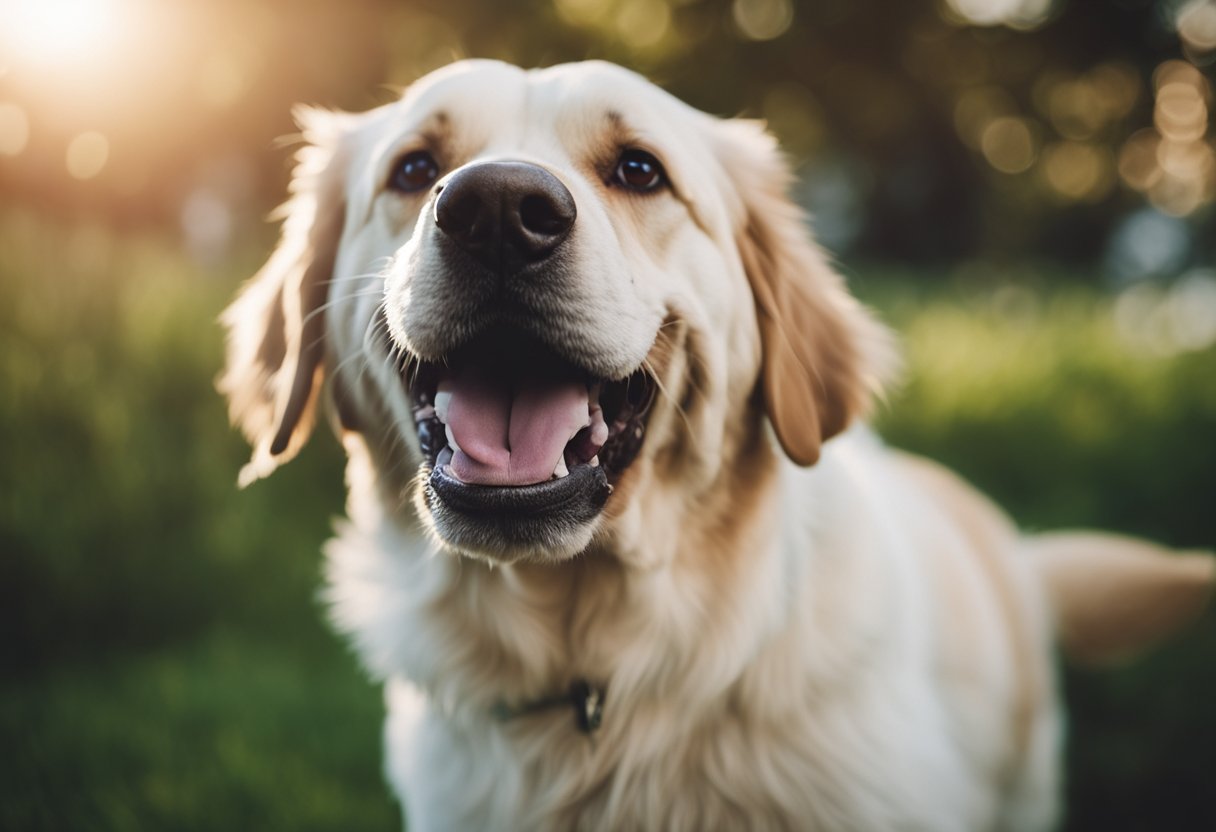
What are the common causes of bad breath in dogs?
The most common cause of bad breath in dogs is poor oral hygiene. This can lead to the buildup of plaque and tartar, which can cause gum disease, tooth decay, and bad breath. Other common causes of bad breath in dogs include a diet high in protein, kidney disease, and diabetes.
How can bad breath in dogs indicate potential health issues?
Bad breath in dogs can be an indicator of potential health issues. For example, if your dog’s breath smells like urine, it could be a sign of a urinary tract infection. If your dog’s breath smells like feces, it could be a sign of an intestinal blockage. If your dog’s breath smells sweet, it could be a sign of diabetes.
What home remedies are effective for treating a dog’s bad breath?
There are several home remedies that can be effective for treating a dog’s bad breath. These include brushing your dog’s teeth regularly, giving your dog dental chews or toys, and adding parsley to your dog’s food. However, it’s important to note that these remedies may only provide temporary relief and that bad breath can be a sign of a more serious underlying health issue.
Can a dog’s diet influence the odor of its breath?
Yes, a dog’s diet can influence the odor of its breath. For example, a diet high in protein can lead to bad breath, while a diet high in carbohydrates can lead to sweet-smelling breath. Additionally, certain foods, such as garlic and onions, can cause bad breath in dogs.
What symptoms accompany bad breath that suggest serious health problems?
If your dog’s bad breath is accompanied by other symptoms, such as vomiting, diarrhea, or a loss of appetite, it could be a sign of a serious underlying health issue. Other symptoms to watch for include excessive drooling, bleeding gums, and difficulty eating or drinking.
How should bad breath in dogs be properly addressed by a veterinarian?
If your dog has bad breath, it’s important to take them to a veterinarian for a proper diagnosis and treatment. Your veterinarian may recommend a dental cleaning, antibiotics, or other treatments depending on the underlying cause of your dog’s bad breath. Additionally, your veterinarian may recommend regular dental cleanings and checkups to prevent future dental issues and bad breath.
